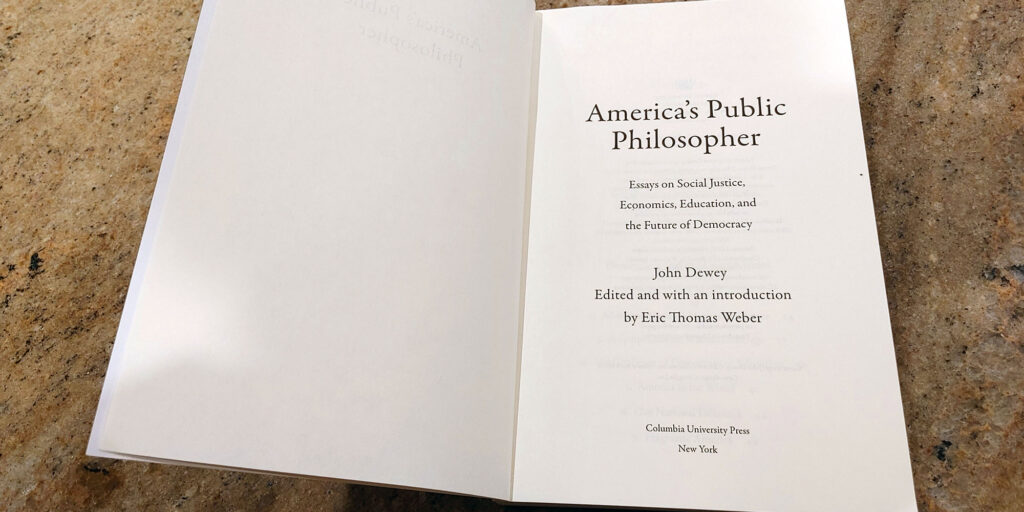Description
John Dewey was America’s greatest public philosopher. A prolific and influential writer for both scholarly and general audiences, he stands out for the remarkable breadth of his contributions. Dewey was a founder of a distinctly American philosophical tradition, pragmatism, and he spoke out widely on the most important questions of his day. He was a progressive thinker whose deep commitment to democracy led him to courageous stances on issues such as war, civil liberties, and racial, class, and gender inequalities.

Endorsements
In these troubled times, Eric Thomas Weber has compiled a magnificent set of essays by John Dewey, the preeminent American public philosopher of the twentieth century. With the help of Weber’s commentaries, all Americans will be able to see how Dewey still speaks to us today, with wisdom and urgency. — Elizabeth Anderson, author of Private Government: How Employers Rule Our Lives (and Why We Don’t Talk about It)
In this collection Eric Weber presents expertly curated essays by one of America’s great public intellectuals. John Dewey’s insights into the core issues of American life, then as now, are as fresh today as when they were first published. They provide ample evidence of his continuing relevance for our exceptional time. — Larry A. Hickman, editor of The Correspondence of John Dewey
John Dewey is the American philosopher of democracy. He understood that democracy, making choices together, is an end in itself, and that attempts to short-circuit democratic processes in the name of something else, whether it’s ethnic nationalism or globalization, diminish us as human beings. His wisdom never goes out of style. There is no better (or worse) time to read him again. — Louis Menand, author of The Metaphysical Club
This is an outstanding collection, unique and most timely, that should receive attention from the sphere of public policy and politics. Weber has chosen writings that speak to America and the world today. — John Robert Shook, coeditor of Dewey’s Enduring Impact: Essays on America’s Philosopher
Reviews

America’s Public Philosopher was published in January of 2021 with Columbia University Press.





 About Me
About Me